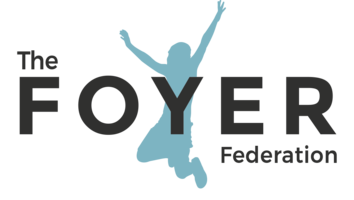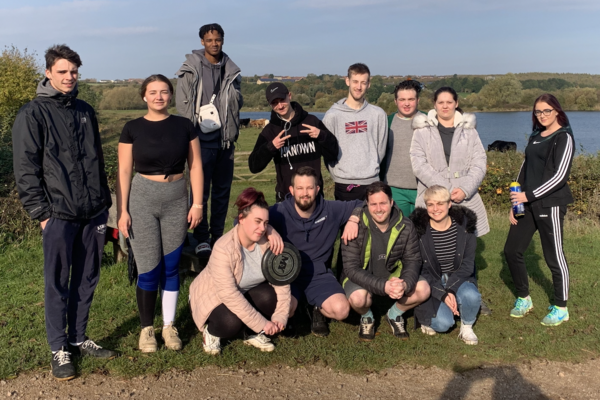With support from Blagrave Trust, the Youth Power Fund was established to fund new thinking and innovation that embeds sustainable youth leadership and shifts the balance of power in favour of young people who live in youth supported housing. We funded seven proposals for youth-led approaches that planned to challenge existing power structures, create long-term, sustainable, systemic change, and act as a catalyst for young people to lead in the local community and beyond.
After the first year of funding, the Foyers have reflected on their learning and what advice they would give to others starting out on their youth leadership journey. Here are our top five tips for developing youth power and leadership in your organisation:
Trust young people - from the start
Time and again at the Foyer Federation we have been impressed with the thoughtfulness and passion of the young people involved in the Youth Power Fund – from a young person gaining employment within the organisation based on her leadership skills, to young people demanding a seat at the table in a meeting with their board of trustees.
Have young people involved from the very start, even at the planning stage. Ask them what they want the project to be, what leadership means to them in their Foyer and work from there. Trust young people to bring ideas to the table not problems. If the ideas don’t work, it’s fine, there can be as much learning in things not going perfectly! If there are legitimate reasons why their ideas aren’t practical, explain them to the young people and look for solutions together.
There will be as much learning for the staff as for the young people
Many of the Foyers found they had to take a hard look at themselves as staff and a whole service. Staff not fully trusting and handing over control to young people was one of the biggest barriers faced by some projects. You may have to advocate for its importance to other staff, who are more risk averse and nervous to hand over the reins. Ask yourselves and the staff team ‘what are you afraid to lose?’ and ‘why is this?’. Be ready to do some self reflection, with space to listen to young people’s feedback and make changes.
Many saw the value in having a shared understanding of power dynamics and theories of youth leadership at the beginning of the project. Having training together on the topic created space to reflect on the questions above and to champion the value of youth leadership throughout the organisation. If young people can attend the training to share their experiences even better!
This work takes time and effort – you will need to be patient and flexible
Working on youth leadership and power can be time consuming but the results are hugely rewarding. Committing staff time and energy to it is vital for success. When a Foyer experienced staffing issues or staff time on the project had not been prioritised there has been mission drift.
With many bumps in the road for all the projects, it’s important to not give up. Instead flex and adapt where possible. Each of the funded Foyers are very different, with a different client group. Spending time interrogating the accessibility of your project with young people is helpful to support success. And be ready to do this on an ongoing basis as the answers are bound to change! Ask young people where, when and how they want to meet. If they are finding it hard to engage, what would make this easier (e.g. payment for attendance, childcare options for young parents, simplifying language in meetings, or having other ways to feed in if group sessions are too overwhelming)? Where possible get young people to ask other young people these questions on the project’s behalf. They will often be able to reach a more and varied group than we will as staff.
Importantly, the Foyers have found that to do this work well takes time and that’s OK. It is much better to fully reflect, embed and shift the culture of the organisation, then to complete a tokenistic intervention quickly.
Make it fun
All of your skills in working with young people to design engaging interventions applies to youth leadership work too. Make sessions interactive, flexible and fun where possible to encourage engagement.
Many of the Foyers realised that they needed to spend more time than they anticipated building trust between the young people, not just with staff. Fun trips, team building activities and residentials were a great way for the group to get to know each other. Most people aren’t excited by the prospect of weekly three hour meetings on dry topics – why would our young people be any different? Make sure you remember fun, factoring this into your project plans and budgets.
Just do it!
Lastly, just do it. When something is new there can be a need to have everything perfectly in place before starting. Many of the Foyers fed back that trying something, even if it didn’t work the first time, has produced huge learning for them as a service.
Starting small can be a great catalyst for growth. For example, a contained but meaningful co-production with young people of a specific thing (e.g. a Foyer app, a learning programme, an event or procedure), can become a springboard for a wider culture shift across the organisation. A positive experience of youth leadership on a smaller scale project has led to the young people wanting to formalise this experience and proved its value to the wider staff team.
If you would like to know more about the Youth Power Fund please email [email protected].






